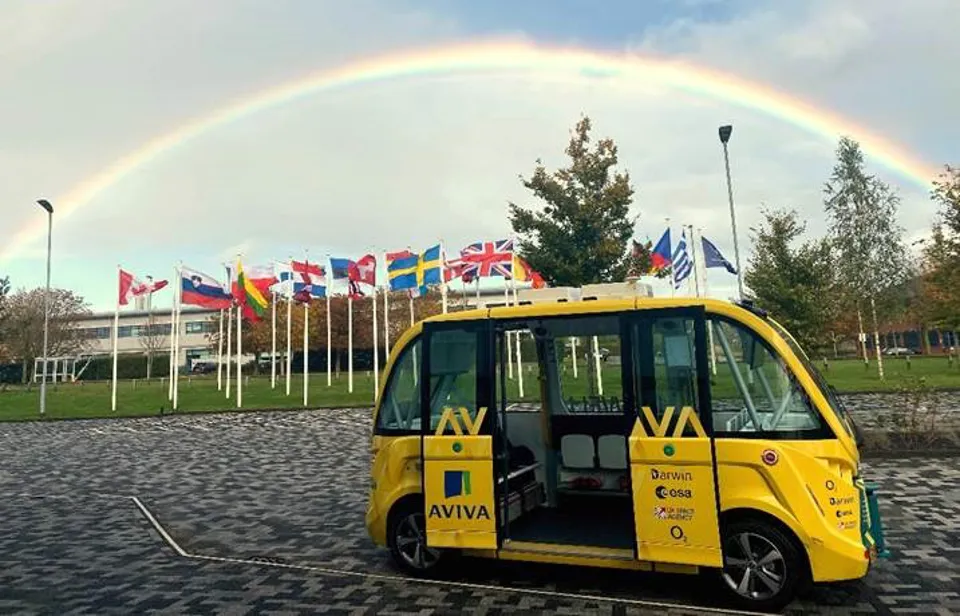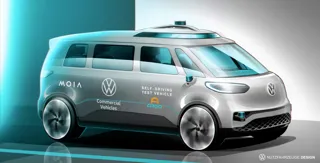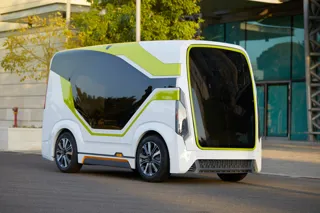Darwin Innovation Group has launched an autonomous shuttle service around the Harwell Science and Innovation Campus in Oxfordshire.
It will transport passengers around the site during a one-year trial, which is funded by the UK Space Agency and European Space Agency (ESA).
The electric shuttle is made by Navya and uses LiDAR sensors, cameras and ultrasound sensors to navigate safely around any obstacles. It also features a satellite (GNSS) antenna for positioning. There is no steering wheel, but it does have safety controls, which will be managed by an on-board operator throughout the trial.
The service will help to demonstrate how self-driving vehicles operate in a real-world setting, with data transmitted via O2’s 4G and 5G networks and Hispasat’s satellites.
Science Minister George Freeman MP said: “Until now autonomous vehicles have relied on terrestrial Wi-Fi, which means they can struggle to operate in remote and rural areas. By unlocking the power of space and satellite technology, these shuttles can stay connected all the time.
“Our National Space Strategy promises to put space technology at the heart of our efforts to make the UK a science and innovation superpower. Autonomous vehicle technology has huge applications in key industries, and the UK is committed to lead in adoption as well as technological innovation.”
The shuttle is insured by Aviva, which will use the trial and resulting data to better understand the evolving mobility market. With this information, Aviva says it will be able to create innovative insurance products to cater for this fast-changing market, including autonomous vehicles and associated technologies.
The autonomous shuttle service operates at Harwell Science Campus during weekdays, morning to evening. It travels two routes, one along Fermi Avenue and one along Eighth Avenue, with the ESA building being the central stop for both routes. There is no cost to ride the shuttle, which is currently available to campus pass-holders and registered guests of pass-holders.
Daniela Petrovic, delivery director at Darwin, said: “We’re thrilled to play a part in demonstrating the real-world potential of autonomous vehicles. Self-driving cars are no longer theoretical, and we believe that CAV trials can help move the UK towards greener, more efficient and more accessible modes of transport.”























Login to comment
Comments
No comments have been made yet.